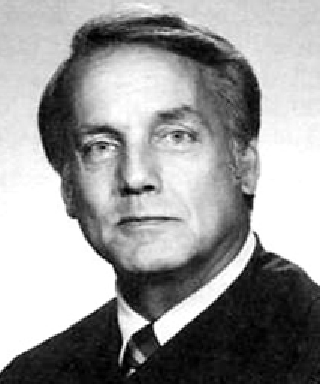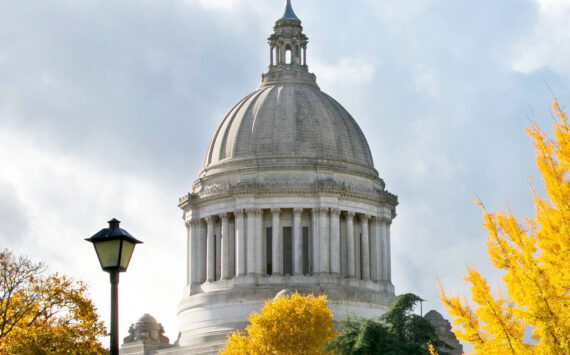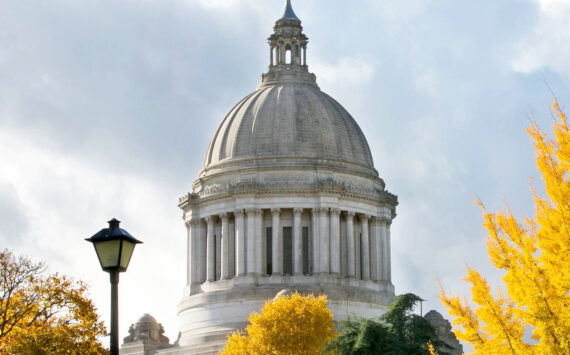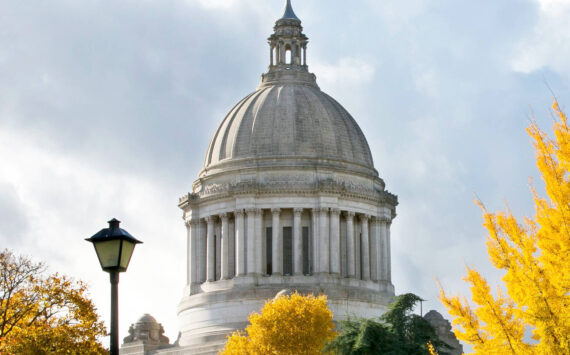Washington’s new free online oral history program, The Legacy Project, has just published the story of Robert F. Utter, who became one of the youngest state Supreme Court justices in history and walked away from power to protest the death penalty in 1995.
His is the fifth in a newly launched series. The Legacy Project, a service of the Office of Secretary of State and the planned state Heritage Center, has posted a 180-page oral history of the jurist, constitutional law expert and author, humanitarian, and sailor. The post includes dozens of photographs, a 14,000-word biography, a new “Q&A” feature and links to stories, articles and video.
Utter and U.S. District Judge Carolyn Dimmick, the first woman to serve on the state Supreme Court, will be honored at a Legacy Project rollout ceremony at noon on June 2 at Secretary of State Sam Reed’s office in Olympia. Dimmick’s oral history was published recently.
“We are delighted to tell the inspiring story of Justice Utter, who has distinguished himself in his long legal career, his work as scholar and author, and in his many, many selfless acts of civic and social leadership in Washington and beyond,” says Secretary of State Sam Reed.
The chief historian and author of the series, John Hughes, says the new “e-published” Utter material offers a glimpse into the long-simmering societal debate over capital punishment.
Utter, just 41 when he was sworn in as Justice in 1971, resigned 23 years later to protest the death penalty.
“I have reached the point where I can no longer participate in a legal system that intentionally takes human life,” Utter told the governor. “We are absolutely unable to make rational distinctions on who should live and who should die.”
In the years since he left the court, Utter has been engaged in judicial, civic and political activism on multiple fronts around the world — from the countries of the former Soviet Union to Rwanda, China and the Czech Republic. Now 78 and living in Olympia, Utter and his wife Betty, a retired teacher and counselor, have been active with the Rural Development Institute, which promotes social justice by helping poor people around the world secure land rights.
Utter was a co-founder in 1958 of the Big Brothers chapter in Seattle, the state’s first. He also helped launch the Thurston-Mason county chapter in 1982 and played a key role in the YMCA’s Youth & Government program, which in 1997 named its top award in his honor.
The project, commissioned by the Legislature to tell the life lessons and personal histories of some of Washington’s most interesting daughters and sons, previously spotlighted three people who were each pioneers in his or her own way: Rocker Krist Novoselic; newswoman Adele Ferguson; and the state’s first African-American Supreme Court justice Charles Z. Smith.
All are on the Legacy Project site, along with photos and other materials, at no charge to the users. The Novoselic story has gotten thousands of hits after being written up in Rolling Stone magazine, The Associated Press and other media outlets.
The Legacy Project, covering former governors and members of Congress, jurists and others, represents a re-launch and re-visioning of oral histories on a shoestring budget — and done with a sense of urgency since so many stories are being lost with the passage of time. The Legislature is operating a separate program for former legislators.
The oral histories and biographical profiles are posted at http://secstate.wa.gov/legacyproject .





